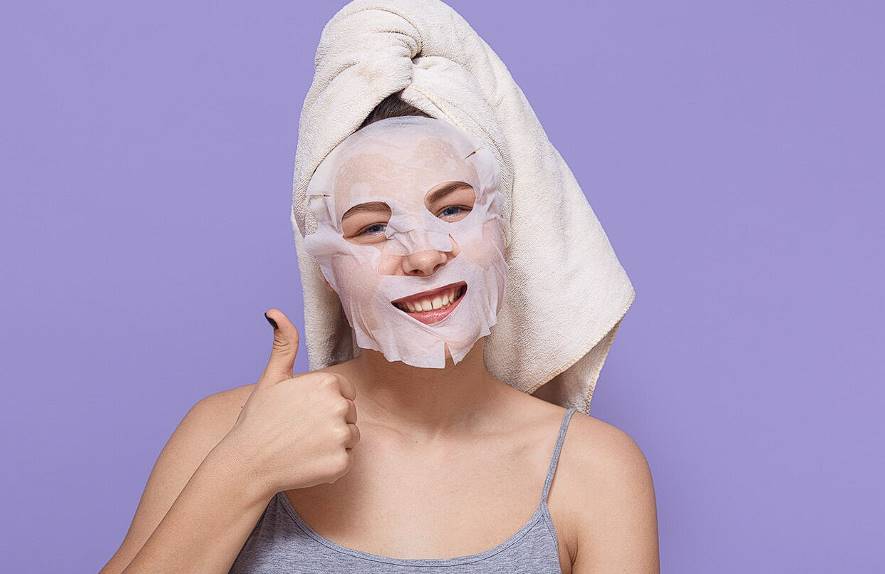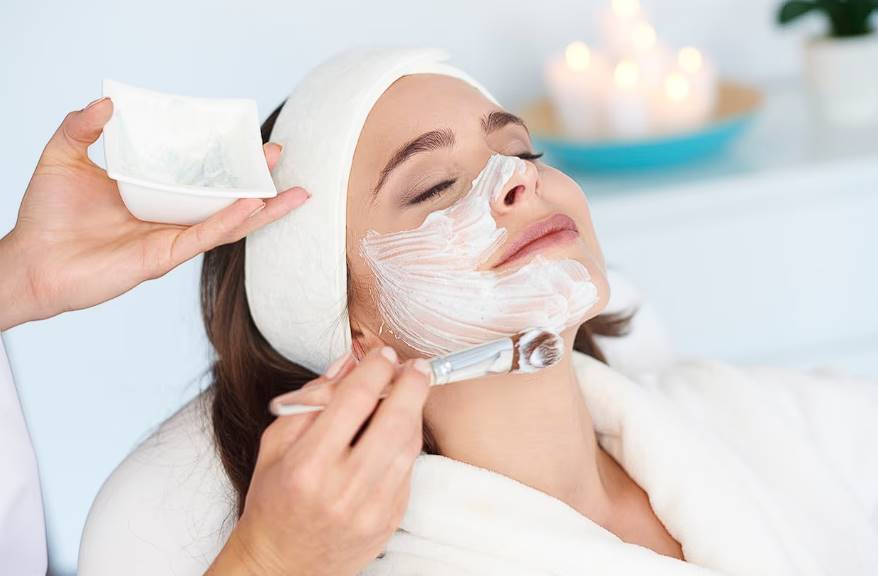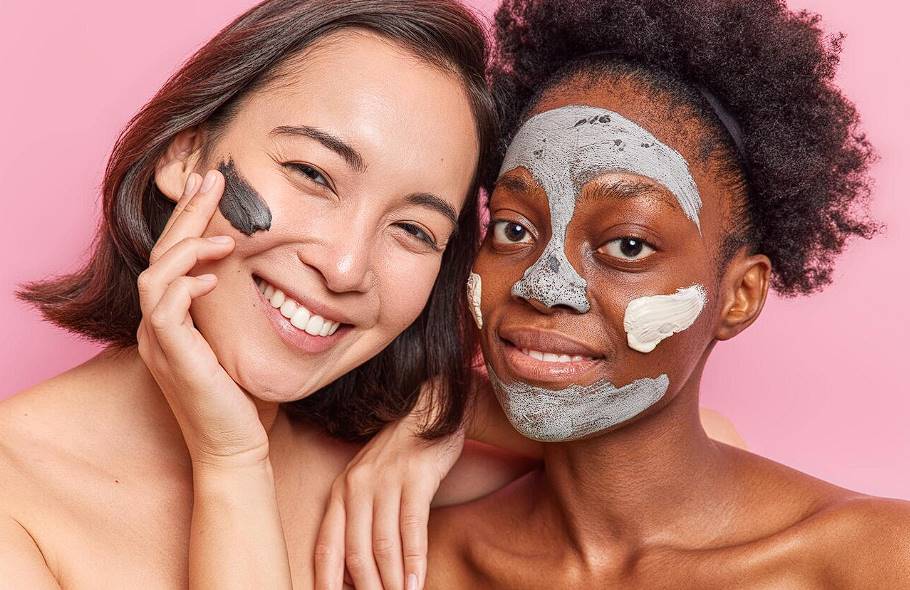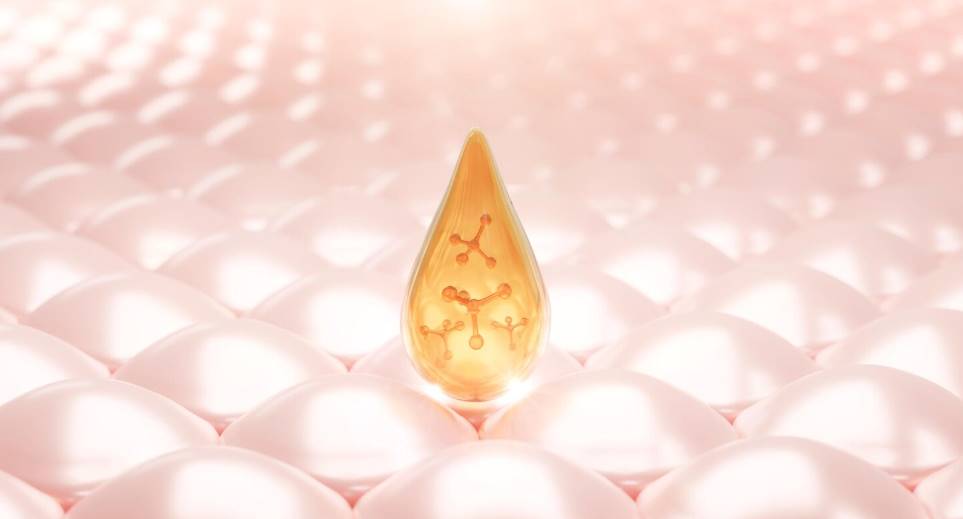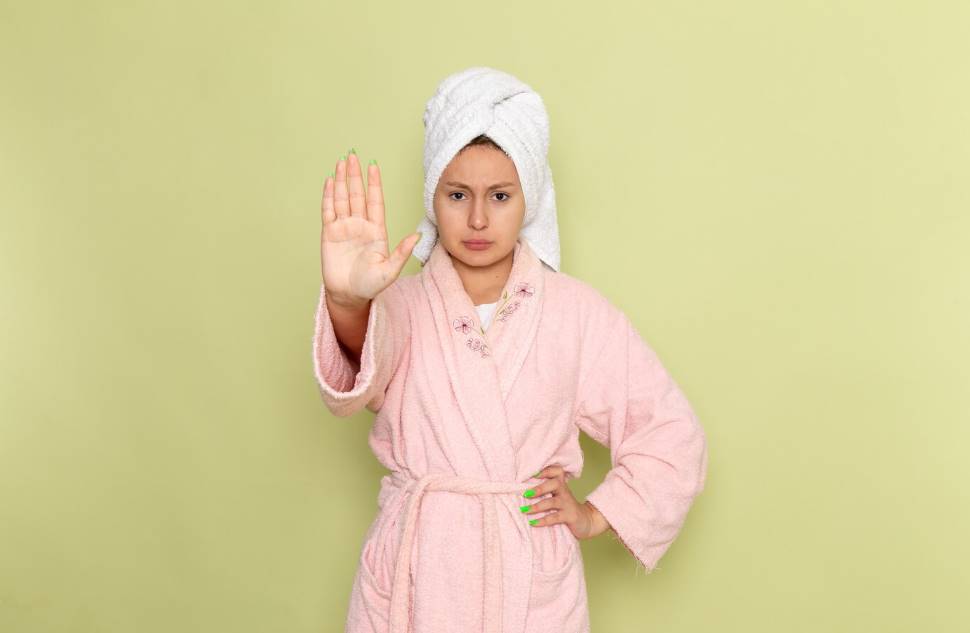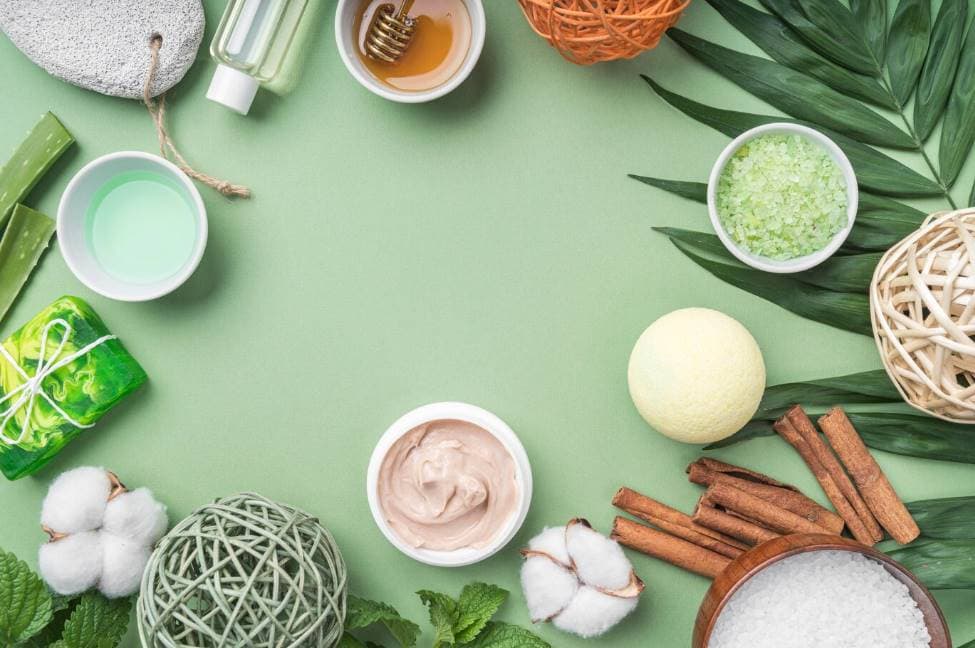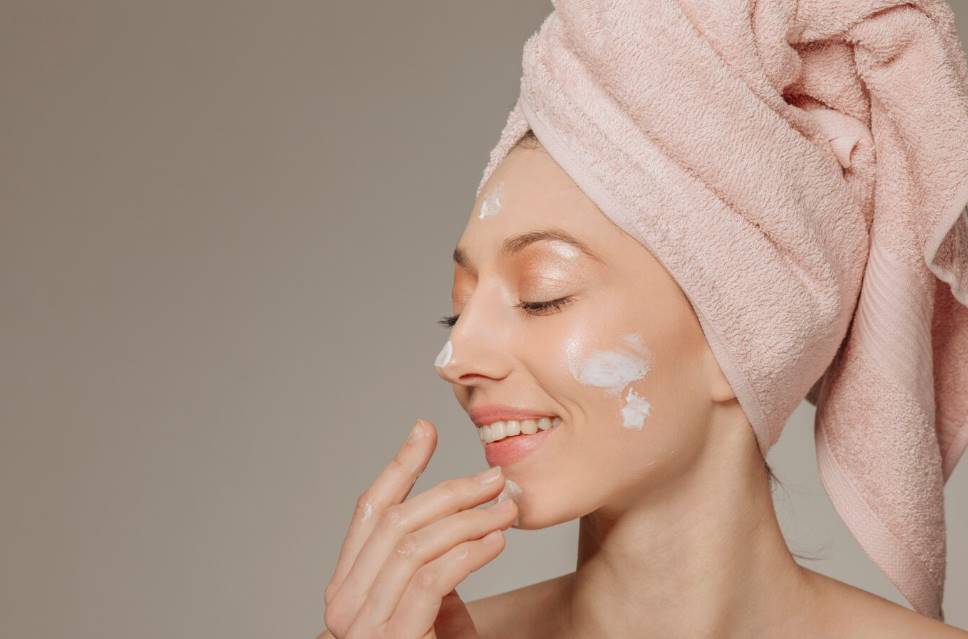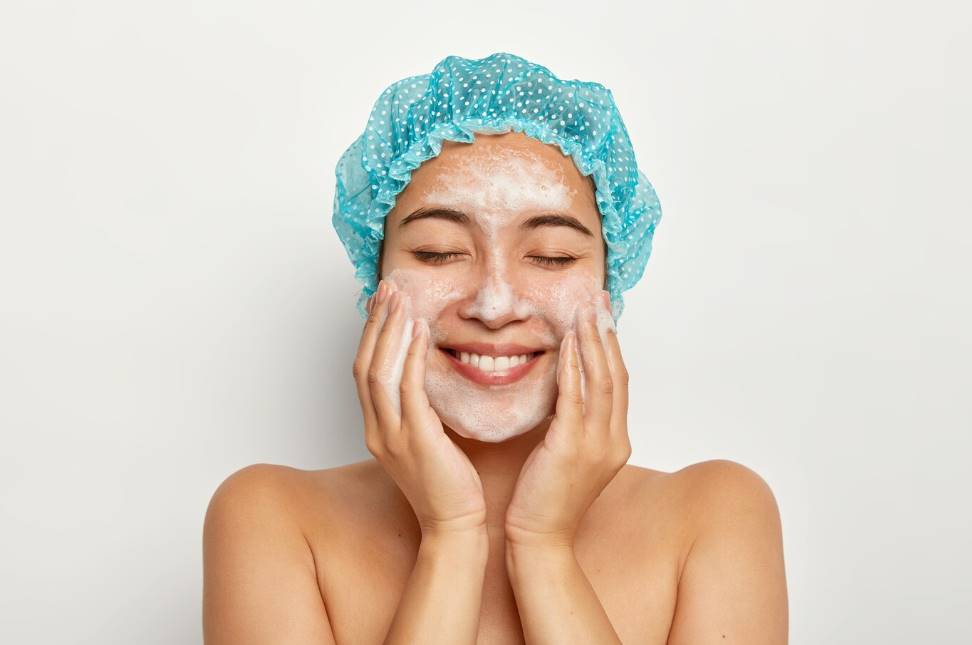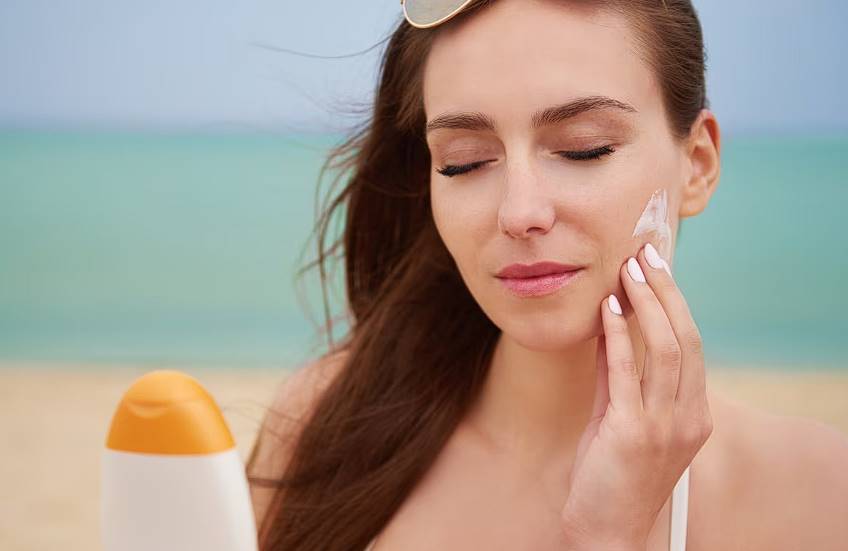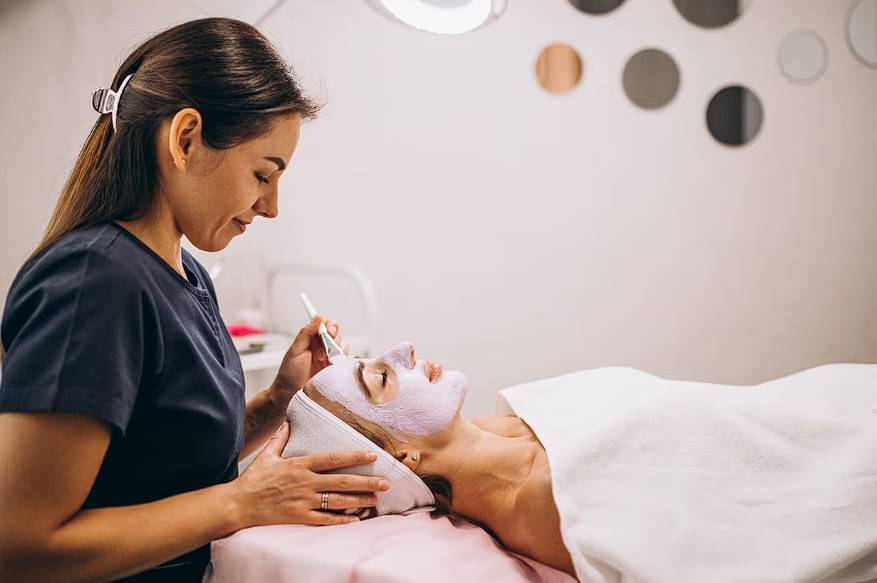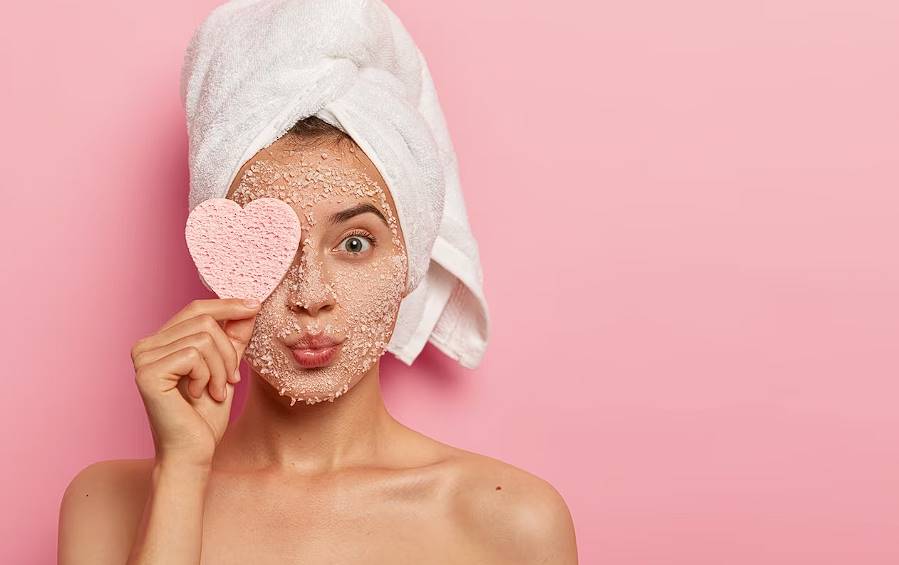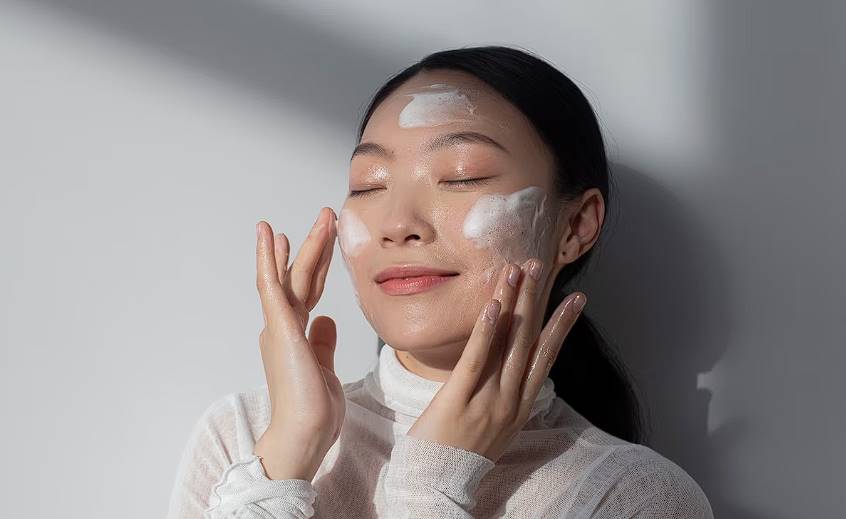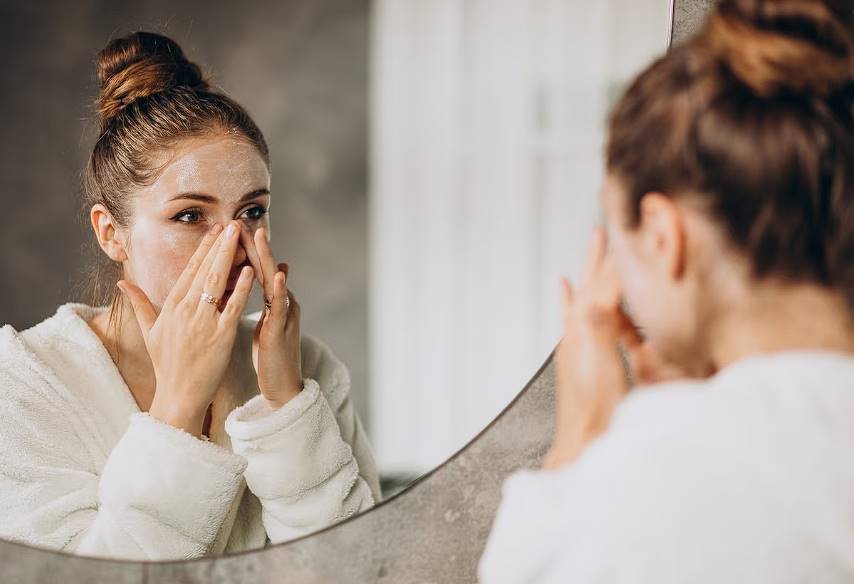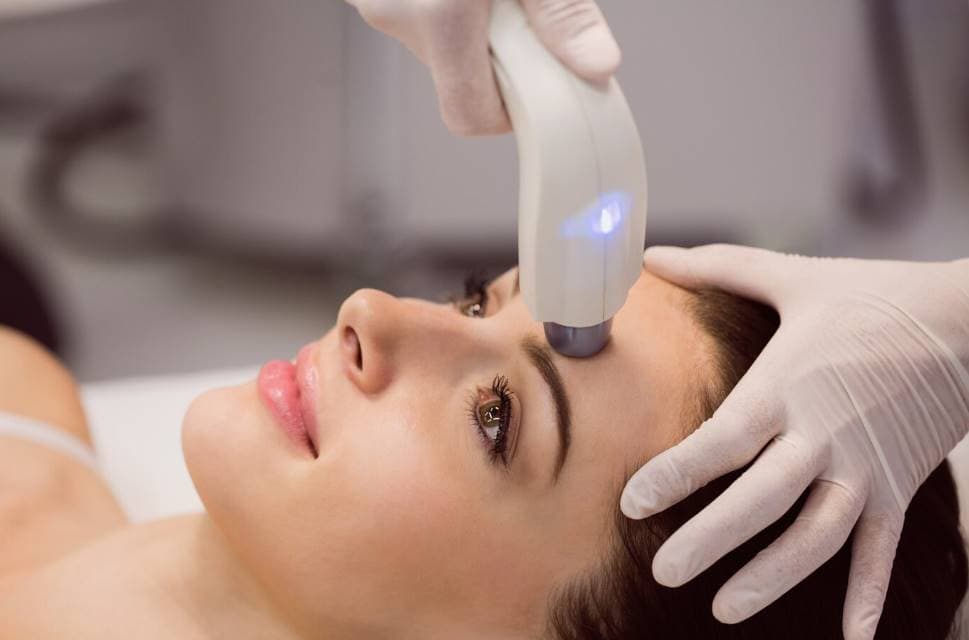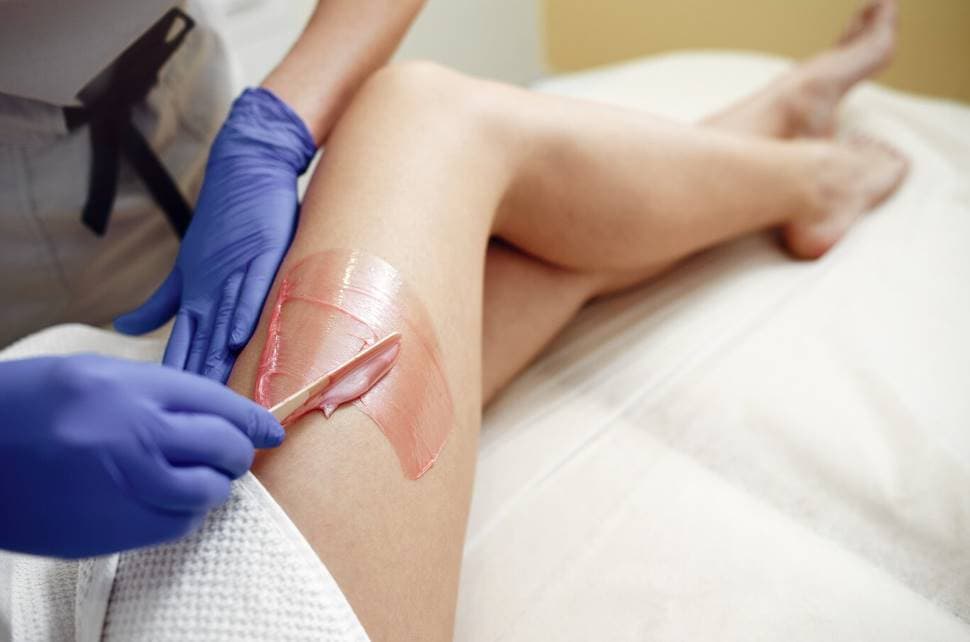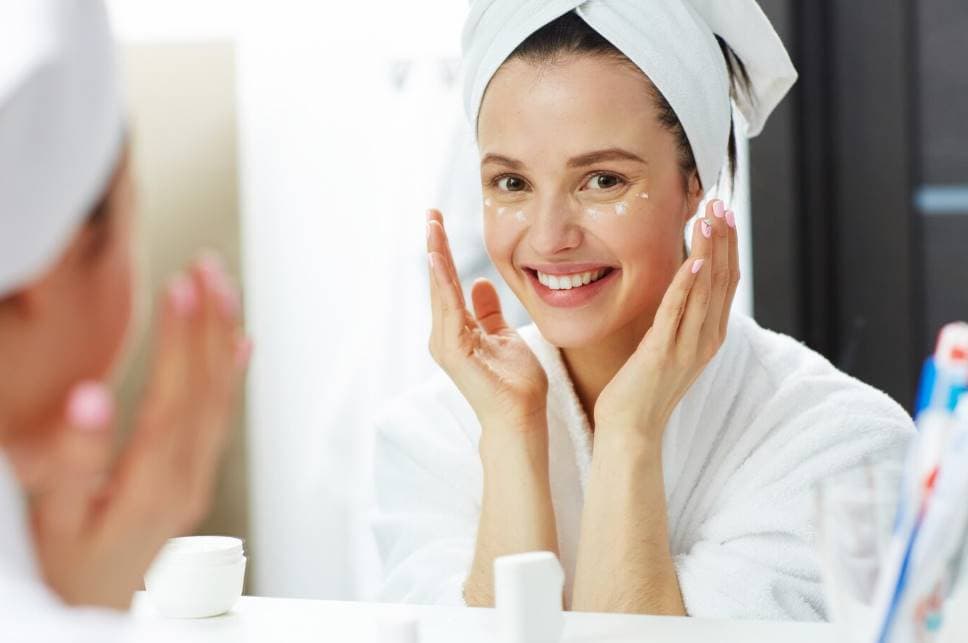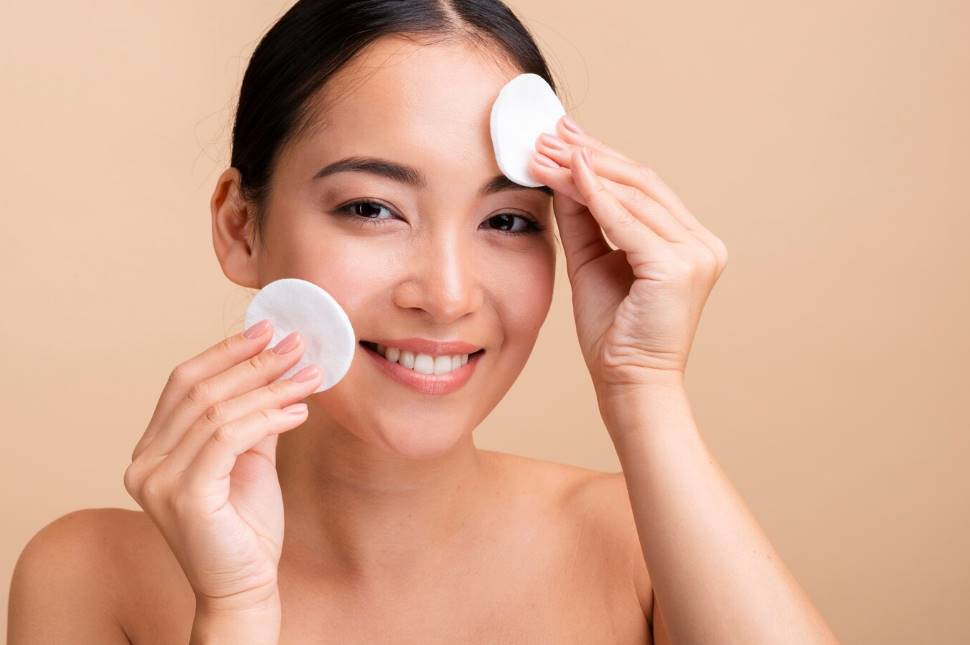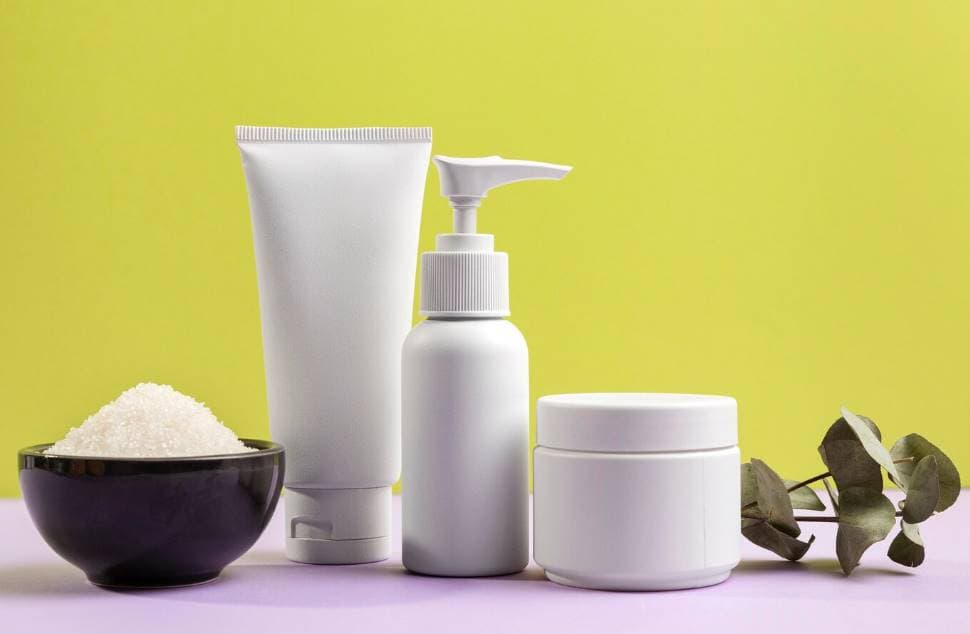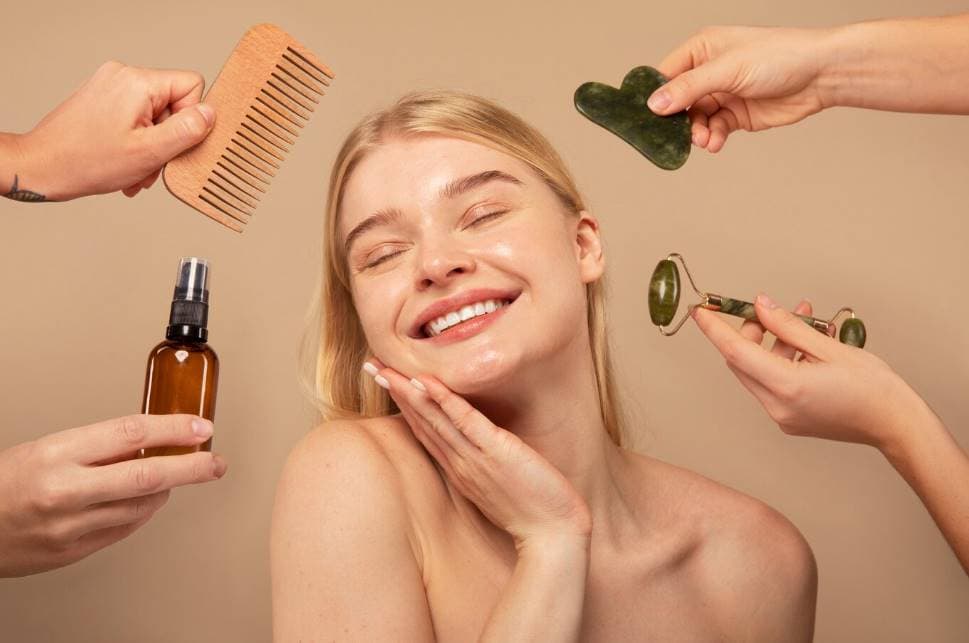Putting on a face mask is more than just another step in your skincare routine; it's an opportunity to pamper yourself while also providing intensive nourishment to your skin. To maximise the benefits of your skincare routine, knowing when to apply a face mask is essential.
After cleansing and exfoliating, many people apply a face mask as a concentrated therapy to target specific skin conditions while also giving extreme hydration or detoxifying, depending on the mask type.
A face mask works best when applied to clean skin. By first thoroughly cleansing the skin, the mask's active ingredients will be able to permeate the skin more effectively. If you exfoliate after cleansing, the mask will work even better.
Dead skin cells are removed during exfoliation, allowing the mask's nourishing ingredients to penetrate the skin more effectively. It's like priming a canvas: the better you take care of it, the more magic the mask can create.
Applying a toner after exfoliating can restore the skin's natural pH, making it more receptive to the mask's nourishing ingredients. After the toner has dry, apply the face mask liberally, taking care to avoid the eye and lip areas.
Once the mask has dried, it forms a protective barrier around the skin that lets the rejuvenating elements flow in and perform their work. While the mask is doing its magic, you can take some time for yourself to unwind and enjoy the calming sensation and pleasant scent.
The mask should be left on for 10-20 minutes, after which it should be rinsed off gently with lukewarm water. After rinsing off a mask, patting the skin dry and applying a hydrating moisturiser will lock in the mask's moisture and protect the skin from further damage.
You should incorporate a masking regimen into your skincare routine at least once or twice a week, whether it's a clarifying mud mask, a moisturising gel mask, or a renewing sheet mask, so that your skin may enjoy the sumptuous benefits of a well-deserved treatment.
What Are Face Masks?
Face masks, laden with highly concentrated ingredients, serve as potent treatments designed to enhance skin health and aesthetics. Face masks present a myriad of ways to rejuvenate skin health.
They play a multifaceted role, offering everything from hydration and exfoliation to pore cleansing and age-defying benefits. Irrespective of skin types and concerns, there's a face mask out there for everyone.
Dive into any beauty aisle, and you'll encounter a plethora of these skincare wonders. Let's break down the myriad options available:
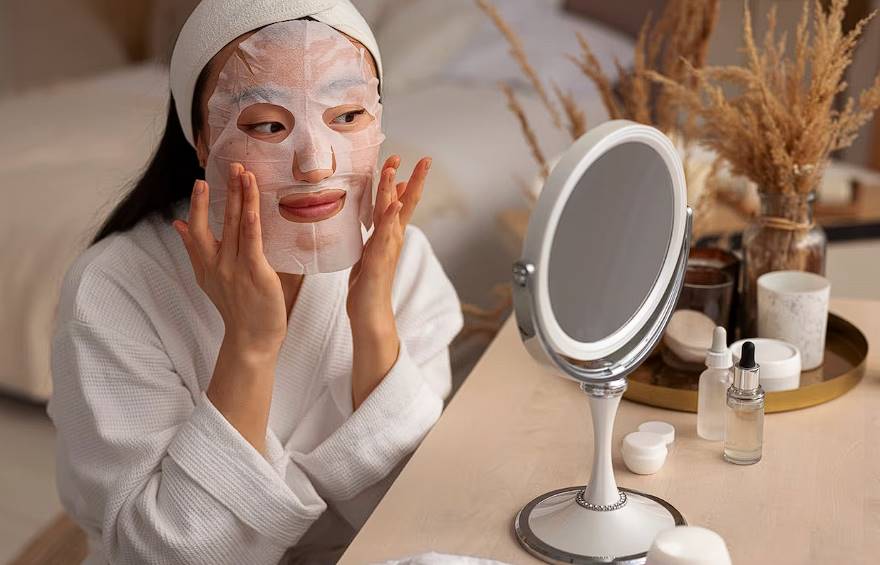
Gel masks
Ideal for those battling oily or acne-prone skin, these masks are light and allow ingredients to sink deep into the skin. Their adaptability means they can address diverse skin concerns, making them a versatile addition to any skincare routine.
Cream masks
The rich texture of these masks offers deep moisturisation. Their hydrating prowess is especially beneficial during cold spells or for individuals with dry skin.
Exfoliating masks
Targeting the removal of dead skin cells, these masks are a boon for those looking to combat acne or signs of ageing. By promoting skin cell regeneration, they pave the way for a fresher complexion.
Clay masks
Primarily focussed on absorbing excess oil and impurities, these masks also provide gentle exfoliation. They are particularly advantageous for those facing acne flare-ups.
Charcoal masks
A counterpart to clay masks, these delve deep to detoxify skin and unclog pores. Those with an oily complexion or prone to acne might find charcoal masks to be particularly beneficial.
Warming masks
Crafted with spices and unique compounds, these masks exude warmth, providing both relaxation and a radiant glow. However, individuals with sensitive skin might want to approach with caution due to potential irritative reactions.
Sheet masks
True to their name, these involve draping a pre-soaked sheet over the face. Engineered to address various skin needs, sheet masks ensure an even application, simplifying the mask ritual. However, they're primarily crafted for the face and don't typically cater to the neck or décolletage.
Face masks are more than a mere skincare trend; they're a gateway to healthier, radiant skin. Whether looking to hydrate, exfoliate, or simply relax, there's a mask waiting to work its magic.
What Makes Face Masks So Beneficial?
Face masks offer a swift and straightforward avenue to bestow upon one's skin both intensive cleansing and moisturisation, accompanied by the delightful indulgence of self-care.
Given the rigours of modern life - be it relentless weather conditions, pollutants, late-night commitments, or strenuous work schedules - achieving vibrant and youthful-looking skin can pose a challenge. Incorporating a face mask into one's regular skincare routine offers a solution.
Depending on individual skincare needs, one can choose from a myriad of face masks, each tailored to rejuvenate the skin's innate luminosity.
Some masks, such as the Fresh Mix Mask Hyaluron Shot, promise deep cleansing, resulting in a hydrated and glowing complexion, while others offer a sensory refresh, leaving the skin feeling invigorated.
Whether one chooses a daily light mask, a weekly multi-mask indulgence, or an intense moisture-boosting sheet mask for special occasions, the options are plentiful.
What Are The Benefits?
The ingredients within a facial mask deliver its distinctive advantages. When applied as a mask, potent compounds that hydrate, revitalise, and balance the complexion are introduced in higher quantities. Clay-based masks can refine and purify the skin, whilst those infused with hyaluronic acid have the unique property of attracting and retaining moisture.
Gel masks might be enriched with nourishing elements like polyhydroxy acids, sea-derived extracts, and antioxidants. To facilitate the shedding of lacklustre dead skin cells and to cleanse pores, some masks incorporate hydroxy acids for exfoliation. To ascertain the most suitable mask for one's skin type, it's advisable to peruse the product details.
10 Mistakes You Should Stop Making
Including a face mask in your regular skincare routine may yield positive results if done properly. A face mask is a terrific way to pamper yourself while also resolving certain skincare issues, such as dryness or oiliness. However, you may not be getting the full benefits of your face mask because of a few typical blunders.
You Don’t Tailor Your Mask to Your Skin Type
You probably choose a face serum according to your skin type and specific concerns, and the same logic should be applied while selecting a face mask. Don't just pick a face mask because everyone seems to be using it; do some research and find one that works well with your skin.
Hydrating Masks
Anti-Aging Mask is a moisturising nighttime mask that helps reduce the look of dry skin and restore luminosity. Formulated with retinol, hyaluronic acid, and vitamin C, this one helps smooth fine lines and wrinkles, firms and brightens the face, and increases the skin's resilience and luminosity.
Clay Masks
The L'Oréal Paris Pure-Clay Detox & Brighten Face Mask is a great mattifying option for those with oily skin. Defeat dullness and clogged pores caused by debris, oils, pollutants, and buildup with this formula's detoxifying charcoal.
You Apply Your Face Mask to Unwashed Skin
Always wash your face and pat it dry before using a face mask, as doing so will yield the best results. Putting a mask on top of existing filth and bacteria on your face is a surefire way to aggravate your skin and cause congestion. You don't need soap to wash your face after using a face mask; just rinse the skin thoroughly.
You Apply Your Mask With Dirty Hands
It goes without saying that you should wash your face thoroughly before applying a face mask, but you should also wash your hands. Avoid applying a face mask with your fingers unless you have thoroughly washed your hands first, as this can spread oil and bacteria from your hands to your face. Some people claim that the ideal way to apply a face mask is with a face cleanser brush, while others recommend using a flat spatula.
You Use Too Much Product
When it comes to face masks, less is generally more, as is the case with many other skin care treatments. A masking session won't be more successful if the product is applied in a thick, uneven layer.
In general, it's best to adhere to the instructions provided on the packaging of the mask you're using. For example, some masks may call for a dollop the size of a dime, while others may call for a dollop the size of a quarter.
You Don’t Trim Your Sheet Masks
Sheet masks rarely conform to the contours of your face. You may make the face mask fit better and prevent bubbles or bare spots on your face by trimming off the excess material with scissors before applying it.
You Only Mask While You’re Awake
It's common to believe that wearing a face mask requires full consciousness. A clay mask is not one of these masks, but there are others that can be worn while sleeping. Use the aforementioned L'Oréal Paris Revitalift Triple Power Anti-Aging Overnight Mask if you wish to improve your skin's appearance while you sleep. A more pleasurable morning is guaranteed when you wake up to hydrated, soft skin.

You Leave Your Mask on for Too Long
If a mask isn't designed to be worn overnight, don't forget about it. 7. You Leave Your Mask on for Too Long. During a moment of self-care, it's easy to let your mind wander, and before you know it, a good chunk of time has passed since you put on your face mask.
Leaving a mask on for longer does not improve its effectiveness, unfortunately. The skin may become irritated if you leave the mask on for too long if it contains active components like alpha hydroxy acid (AHAs). If you're worried about forgetting, put a timer on your phone to remind you of the recommended time period.
You Don’t Moisturize After Masking
Simply put, moisturising is a must for healthy skin. We can't stress how important it is that you do it after masking, but especially before you go to bed. Keep in mind that while masks can be a nice addition to your skincare routine, they shouldn't always be used in place of other methods.
After removing your face mask, moisturise your skin with a lightweight product like L'Oréal Paris Revitalift Derm Intensives Micro Hyaluronic Acid + Ceramides Line-Plumping Water Cream to help it retain the moisture it just absorbed.
You Don’t Use Face Masks Regularly
Face masks can be worn every day, not just on special occasions. A couple of times weekly application of the one you prefer may help your skin tone. How often a face mask can be used is formula dependent; there is no hard and fast rule. When in doubt, consult the package's instructions.
You Haven’t Tried Multi-Masking
You should probably use more than one mask at a time instead of just one. When you multi-mask, you apply different masks to different parts of your face at once to meet the varied needs of your skin.
Think about your specific skin issues before deciding on a face mask. Apply a clay mask to your oily T-zone and a moisturising mask to your dry areas if you have mixed skin. In this manner, your skin care routine may be tailored to your specific needs.
Conclusion
A face mask is an important part of good skincare because it deeply moisturises and treats the skin. It works best on clean skin because the active ingredients can get deeper into the skin that way.
After cleaning, exfoliating gets rid of dead skin cells, which makes it easier for the mask's healing ingredients to get into the skin. After scrubbing, using a toner brings the skin's pH back to its normal level, which lets the mask's healing ingredients work better.
Face masks are powerful treatments that are meant to improve the health and appearance of your face. They do this by moisturising, exfoliating, cleaning your pores, and slowing down the ageing process.
There are many kinds of masks, such as gel masks for oily or acne-prone skin, cream masks for deep moisturising, exfoliating masks for fighting acne or signs of ageing, clay masks for drawing out oil and dirt, charcoal masks for detoxifying skin, warming masks for relaxation and a healthy glow, and sheet masks where you put a pre-soaked sheet over your face.
Face masks are an easy and quick way to deeply clean and moisturise your skin while also taking care of yourself. You can use them every day, once a week, or even on special events. The things that go into a face mask have special benefits, like strong chemicals that hydrate, refresh, and balance the skin.
Masks with clay can smooth and clean the skin, and masks with hyaluronic acid can draw in and hold onto water. Polyhydroxy acids, sea-derived extracts, and vitamins are some of the healthy ingredients that can be added to gel masks.
At least once or twice a week, masking should be a part of your skincare practise to get healthier, more radiant skin.
Finally, good face mask practice should include customising the mask, putting it on correctly, and using more than one mask at a time.
Content Summary
- Maximising your skincare routine involves understanding the optimal time to apply a face mask.
- Face masks provide an intensive treatment post-cleansing and exfoliating.
- Clean skin enhances the mask's effectiveness by allowing better absorption of active ingredients.
- Exfoliation prior to masking can enhance the penetration of nourishing components.
- Toners post-exfoliation can set the right pH level, priming the skin for the mask.
- Remember to avoid applying masks near sensitive areas like eyes and lips.
- A 10-20 minute duration is typically recommended for most face masks.
- Hydrating moisturisers post-mask can seal in the benefits and moisture.
- Implement a face mask regimen at least once or twice weekly for optimal results.
- Gel masks, due to their lightweight nature, are ideal for oily or acne-prone skin.
- During winter or for dry skin types, cream masks offer intense hydration.
- Exfoliating masks can pave the way for a more rejuvenated complexion.
- Clay masks can be a game-changer for those combating acne.
- Charcoal masks offer profound detoxification and are especially beneficial for oily skins.
- Warming masks infused with spices provide relaxation and a radiant afterglow.
- Sheet masks are designed for convenience and ensure even application.
- The beauty aisles are replete with a range of face masks catering to varied needs.
- Face masks have evolved beyond being a mere trend; they're an essential skincare tool.
- Face masks present a luxurious way to address diverse skin challenges.
- Gel masks, owing to their adaptability, can tackle various skin concerns.
- Clay and charcoal masks primarily focus on detoxifying the skin.
- Modern-day challenges like pollution and stress necessitate the use of face masks.
- Dead skin cells can hinder the effectiveness of face masks.
- After a face mask, the skin often feels rejuvenated and appears more luminous.
- Investing in the right face mask can elevate your entire skincare regimen.
- Masks infused with hyaluronic acid can attract and retain moisture.
- It's crucial to select a face mask tailored to individual skin needs.
- Remember to always apply a face mask to cleansed skin for better results.
- Never apply a face mask with unwashed hands to avoid contaminating your skin.
- Overusing the product doesn't equate to better results; follow the recommended quantity.
- Tailoring your face mask to your specific skin type can enhance benefits.
- For hydrated skin upon waking, consider an overnight mask.
- Leaving a mask on longer than recommended can potentially irritate the skin.
- Regular moisturisation after masking ensures the skin remains soft and hydrated.
- For consistent results, incorporate face masks into your routine regularly.
- Multi-masking allows for targeted treatment of different facial areas.
- Understanding your skin's needs can help in selecting the perfect face mask.
- Different areas of the face may require different masks for optimal care.
- Don't overlook the benefits of multi-masking for a holistic treatment.
- If you have combination skin, consider different masks for the T-zone and dry areas.
- Regular use of masks can help in achieving a consistent skin tone.
- Masks aren't just for special occasions; they're an essential skincare step.
- Every face mask is designed with a specific purpose in mind.
- In-depth cleansing prior to a face mask ensures the best outcome.
- Always consult the mask's packaging for specific application instructions.
- Hydrating masks, like the L'Oréal Paris Revitalift, can revitalise the skin.
- Clay masks, such as the L'Oréal Paris Pure-Clay, are perfect for oil control.
- Always rinse off face masks with lukewarm water for gentle removal.
- Masking is an opportunity to relax, indulge, and provide your skin with essential care.
- Face masks, when used correctly, can transform your skincare regimen and overall complexion.
Frequently Asked Questions
Face masks are typically applied after cleansing and toning the skin. This allows the mask to penetrate better into clean skin, maximising its effectiveness. It's generally recommended to use a face mask after cleansing and before applying serums, moisturisers, or any other skincare products.
The frequency of using a face mask depends on the type of mask and your skin's needs. For most masks, using them once or twice a week is sufficient. However, it's essential to read the product instructions, as some masks are designed for daily use, while others are meant to be used less frequently.
It's generally better to apply a face mask after exfoliating your skin. Exfoliation removes dead skin cells, allowing the mask to work more effectively. However, avoid aggressive exfoliation before using a mask, especially if the mask contains active ingredients, as it may lead to irritation.
Yes, you can use multiple masks in one session if each mask targets different skin concerns and areas. For example, you can use a purifying mask on your T-zone to address oiliness and a hydrating mask on your cheeks to add moisture. However, it's important not to overload your skin with too many active ingredients, so choose masks that complement each other.
It's better to apply a face mask after a shower rather than during it. The warm water and steam during a shower open up your pores, making your skin more receptive to the mask's benefits. After your shower, pat your skin dry and apply the mask immediately to lock in the moisture and nutrients.
